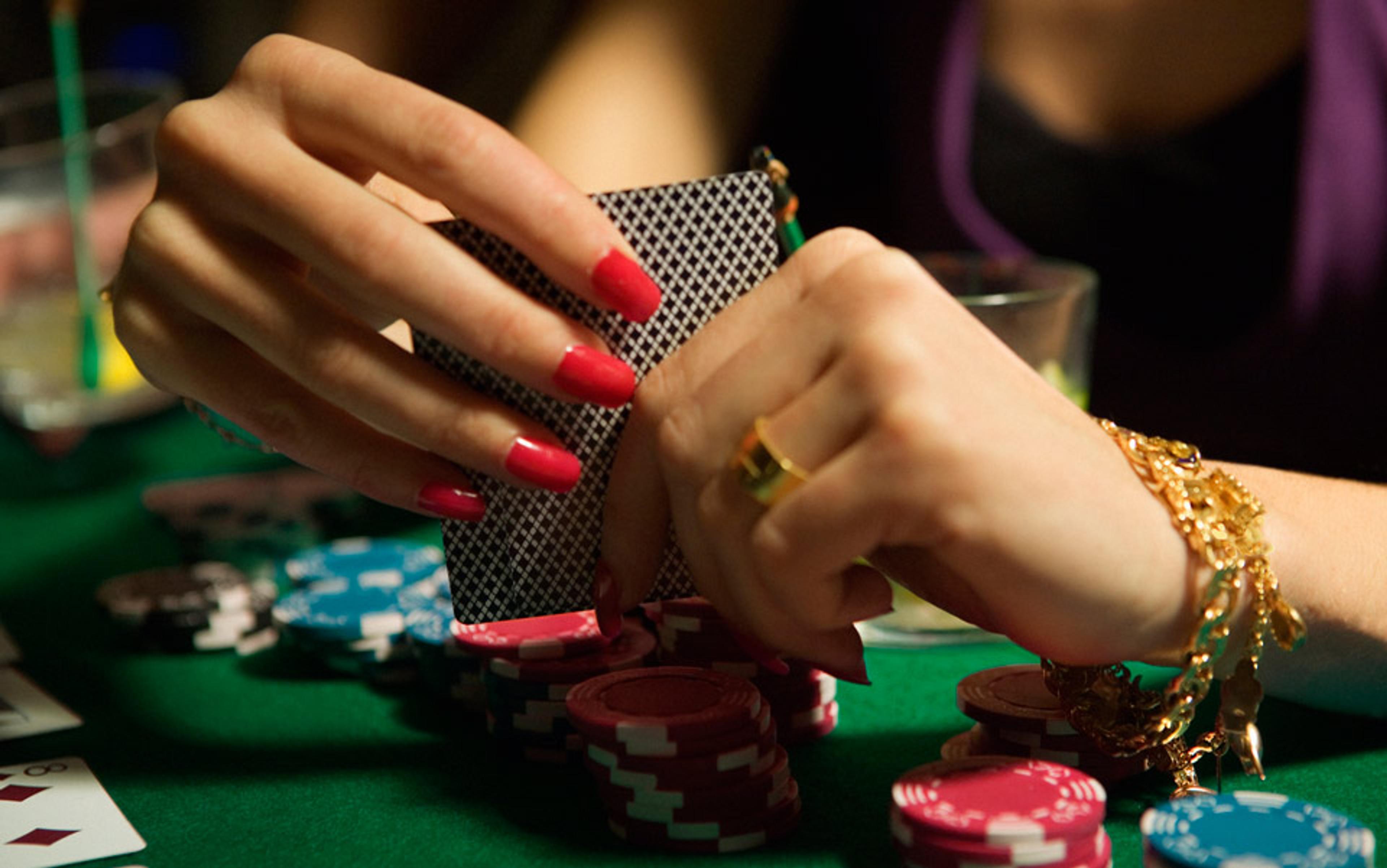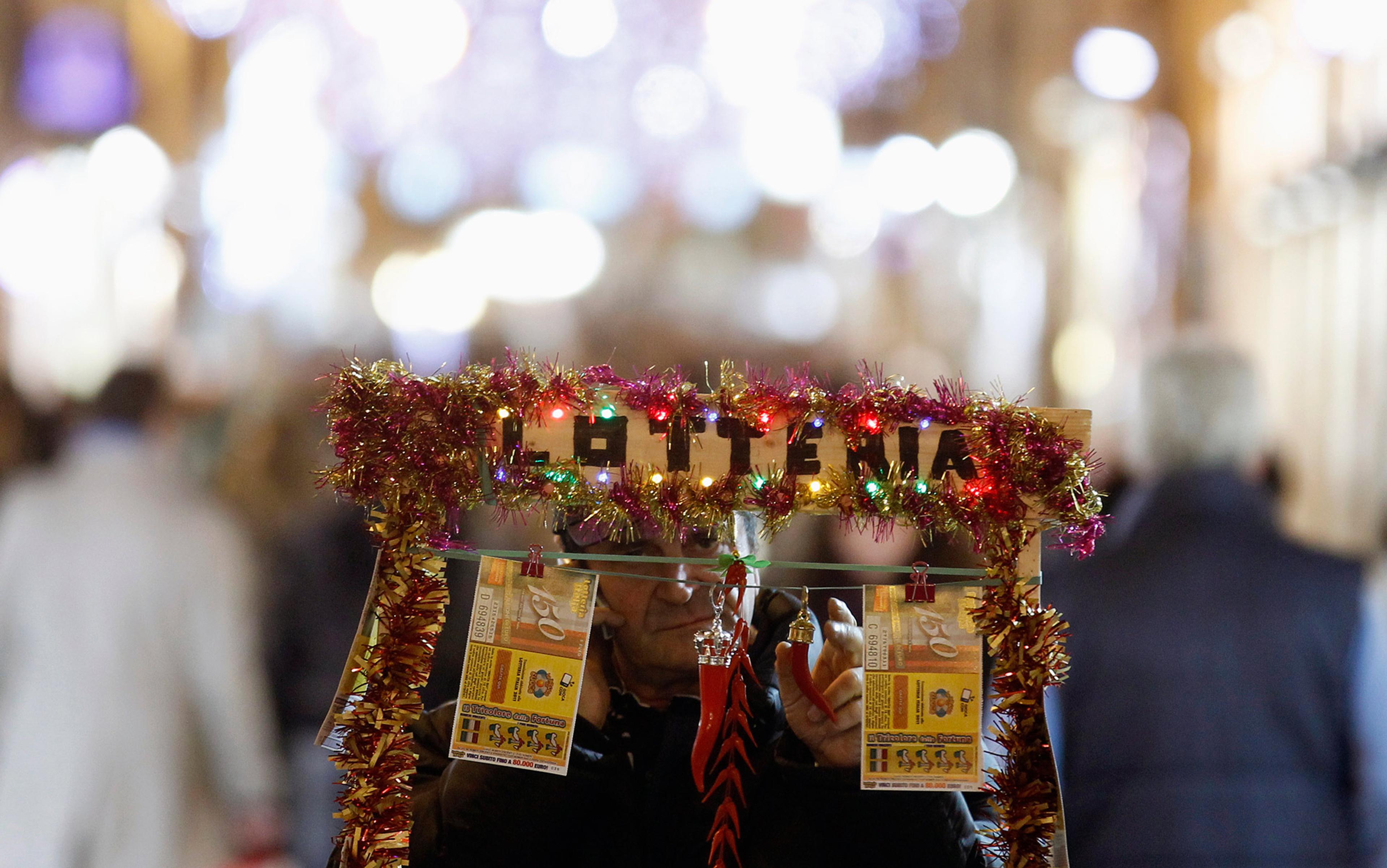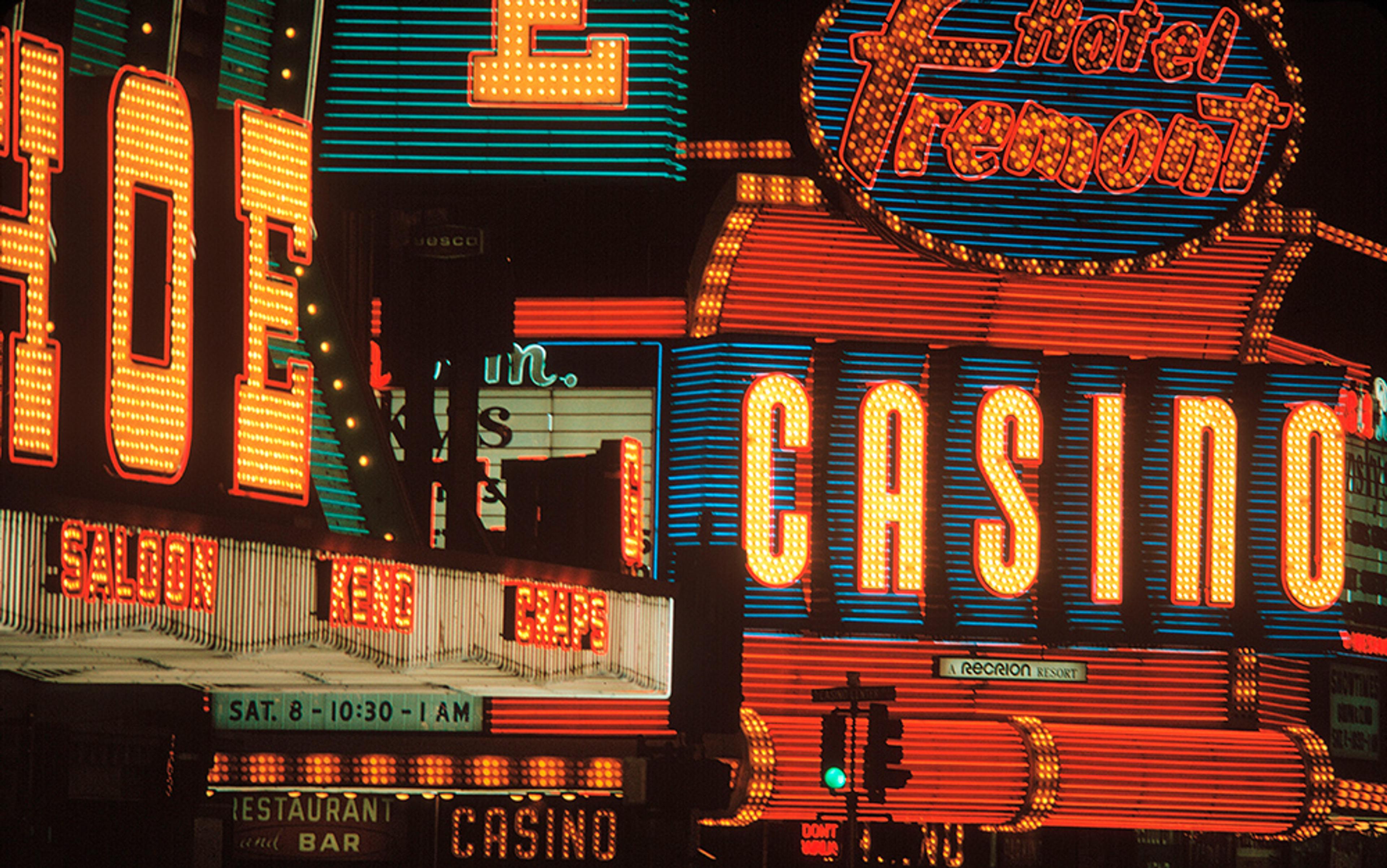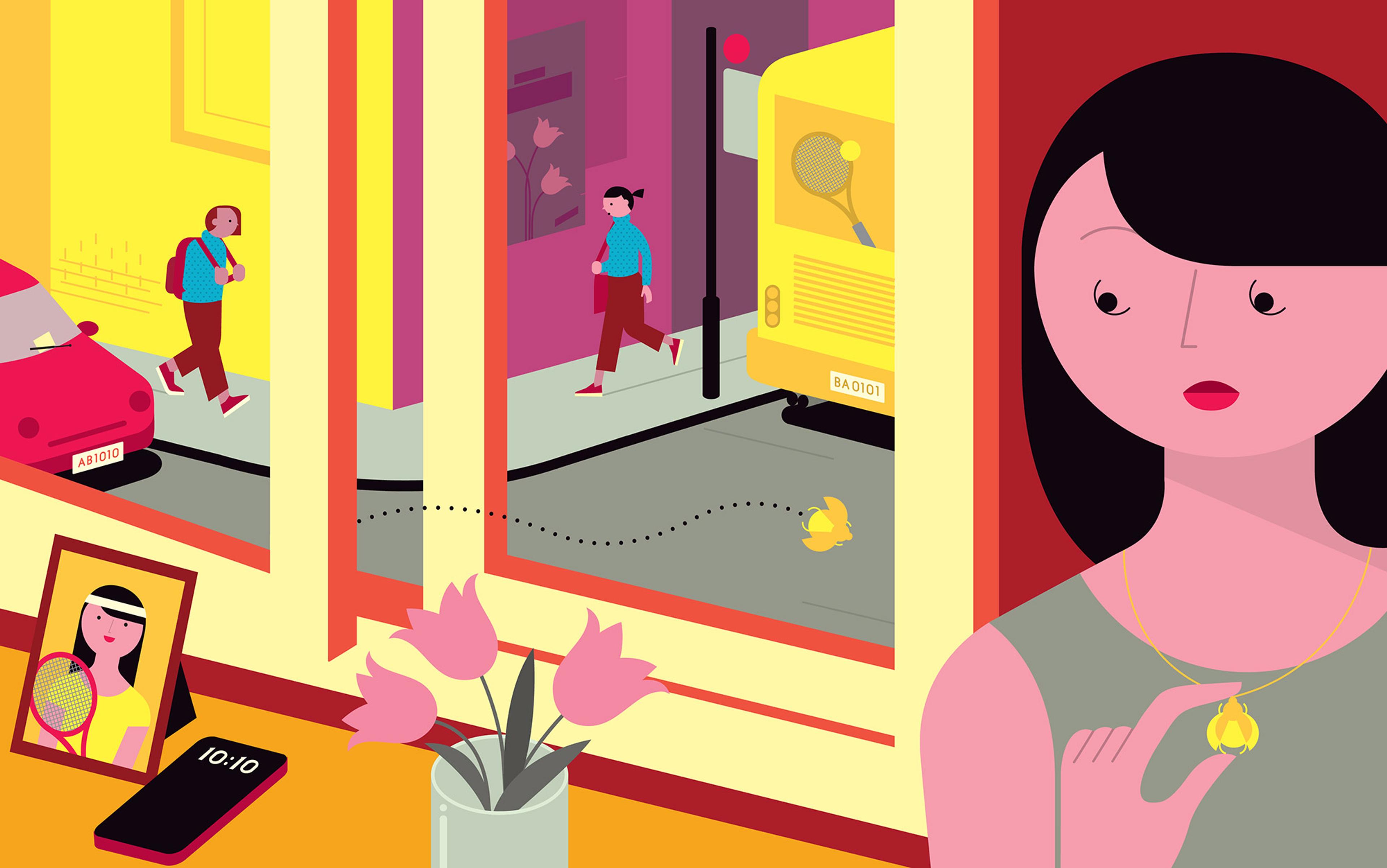In 1992, Archie Karas, then a waiter, headed out to Las Vegas. By 1995, he had turned $50 into $40 million, in what has become known as the biggest winning streak in gambling history. Most of us would call it an instance of great luck, or we might say of Archie himself: ‘What a lucky guy!’ The cold-hearted statistician would laugh at our superstious notions, and instead describe a series of chance processes that happened to work out for Karas. In the larger landscape where randomness reigns, anything can happen at any given casino. Calling its beneficiaries lucky is simply sticking a label on it after the fact.
To investigate luck is to take on one of the grandest of all questions: how can we explain what happens to us, and whether we will be winners, losers or somewhere in the middle at love, work, sports, gambling and life overall? As it turns out, new findings suggest that luck is not a phenomenon that appears exclusively in hindsight, like a hail storm on your wedding day. Nor is it an expression of our desire to see patterns where none exist, like a conviction that your yellow sweater is lucky. The concept of luck is not a myth.
Instead, the studies show, luck can be powered by past good or bad luck, personality and, in a meta-twist, even our own ideas and beliefs about luck itself. Lucky streaks are real, but they are the product of more than just blind fate. Our ideas about luck influence the way we behave in risky situations. We really can make our own luck, though we don’t like to think of ourselves as lucky – a descriptor that undermines other qualities, like talent and skill. Luck can be a force, but it’s one we interact with, shape and cultivate. Luck helps determine our fate here on Earth, even if you think its ultimate cause divine.
Luck is perspective and point of view: if a secular man happened to survive because he took a meeting outside his office at the World Trade Center on the morning of 11 September 2001, he might simply acknowledge random chance in life without assigning a deeper meaning. A Hindu might conclude he had good karma. A Christian might say God was watching out for him so that he could fulfil a special destiny in His service. The mystic could insist he was born under lucky stars, as others are born with green eyes.
Traditionally, the Chinese think luck is an inner trait, like intelligence or upbeat mood, notes Maia Young, a management expert at the University of California, Los Angeles. ‘My mom always used to tell me, “You have a lucky nose”, because its particular shape was a lucky one, according to Chinese lore.’ Growing up in the American Midwest, it dawned on Young that the fleeting luck that Americans often talked about – a luck that seemed to visit the same person at certain times (‘I got lucky on that test!’) but not others (‘I got caught in traffic before my interview!’) – was not equivalent to the unchanging, stable luck her mother saw in her daughter, her nose being an advertisement of its existence within.
‘It’s something that I have that’s a possession of mine, that can be more relied upon than just dumb luck,’ says Young. The distinction stuck with her. You might think someone with a lucky nose wouldn’t roll up their sleeves to work hard – why bother? – but here’s another cultural difference in perceptions of luck. ‘In Chinese culture,’ she says, ‘hard work can go hand-in-hand with being lucky. The belief system accommodates both.’
On the other hand, because Westerners see effort and good fortune as taking up opposite corners of the ring, they are ambivalent about luck. They might pray for it and sincerely wish others they care about ‘Good luck!’ but sometimes they just don’t want to think of themselves as lucky. They’d rather be deserving. The fact that they live in a society that is neither random nor wholly meritocratic makes for an even messier slamdance between ‘hard work’ and ‘luck’. Case in point: when a friend gets into a top law or medical school, we might say: ‘Congratulations! You’ve persevered. You deserve it.’ Were she not to get in, we would say: ‘Acceptance is arbitrary. Everyone’s qualified these days – it’s the luck of the draw.’
Scientists researching luck often look to sports, where chance plays a role in even the most skill-reliant competitions, and outcomes are easy to measure. One of the most studied phenomena in the field is lucky streaks, where players seem to be on fire, so to speak – hence the official term for it, ‘hot hands’. A landmark paper by the Stanford psychologists Thomas Gilovich, Robert Vallone and Amos Tversky, published in 1985, declared that the hot hand did not exist and was instead an illusion born of that deep-seated tendency to see patterns in our environments. Players and fans disputed the finds, and researchers dubbed their insistence ‘the Hot-Hand Fallacy’.
Last year, however, three Harvard University students caused big trouble for hot-hand deniers. Andrew Bocskocsky, John Ezekowitz and Carolyn Stein reasoned that, once a player is hot, he might be emboldened to take more difficult shots, thereby ‘cancelling out’ the hot-hands effect. (Previous studies falsely assumed a random assortment of shots by players.) The students got hold of a video consisting of 83,000 shot attempts from the 2012-13 US National Basketball Association season, giving them enough information to assess the difficulty of the shots. They showed, first of all, that players who felt ‘hot’ did in fact start taking harder shots. And, after controlling for the difficulty of each shot selected, they found a small yet significant hot-hands effect – that is, those who did well began to do even better over time.
Around the same time, another group, Jeffrey Zwiebel of Stanford and Brett Green of the University of California, Berkeley, found that opponents strengthen their defence against hot players – thereby acting against a hot-hands effect. Previous research didn’t have enough data to take this into account sufficiently, and thus interpreted any decline in a hot player’s performance as proof that he was not on a streak.
Could good luck beget good luck and bad luck really beget bad luck?
Given this impediment, Zweibel and Green decided to look at the sport of baseball, where an opposing team can’t do as much to frustrate a hitter on a roll. They were on to something: when they analysed 12 years of data from Major League Baseball, they found that how a player performed the most recent 25 times at bat was a significant predictor of how he would do the next time. They also calculated that a hot player was 30 per cent more likely to get a home run than if he were not on a winning streak. Lucky streaks are real and not just an illusion, they said.
But what causes them? Is it truly luck, or something else? Perhaps it comes down to the odds. That’s the suggestion from research into both winning and losing streaks from University College London. Researchers Juemin Xu and Nigel Harvey analysed about half a million sports bets (courtesy of an online gambling company) and found that those on winning streaks were much more likely than not to keep winning, and those on losing streaks were more likely to keep losing than 50/50 chances would dictate.
For example, a gambler who had just won three times in a row, won 67 per cent of the time on his fourth bet. If he won on his fourth bet, then he cleaned up 72 per cent of the time on the fifth bet. Those who lost their first bets were just 47 per cent likely to win on the second and, if they lost again, only 45 per cent likely to win on the third. Could good luck beget good luck and bad luck really beget bad luck, just as the rich get richer and the poor get poorer?
The team then dug deeper to reveal why these streaks were in fact real: it was the bettors’ own doing. As soon as they realised they were winning, they made safer bets, figuring their streaks could not last forever. In other words, they did not believe themselves to have hot hands that would stay hot. A different impulse drove gamblers who lost. Sure that lady luck was due for a visit, they fell for the gambler’s fallacy and made riskier bets. As a result, the winners kept winning (even if the amounts they won were small) and the losers kept losing. Risky bets are less likely to pay off than safe ones. The gamblers changed their behaviours because of their feelings about streaks, which in turn perpetuated those streaks.
If behaviour influences luck, do people who think of themselves as lucky behave differently from the rest of us? A 2009 study co-authored by Maia Young assessed whether students believed in stable luck as a trait they themselves possessed. She found a relationship between the belief in stable luck (versus fleeting luck) and measures of achievement and motivation, including whether or not the students persisted at tasks or chose challenging ones to begin with. Lucky people, it seems, are go-getters. ‘You can see how someone who believes in stable luck will be more motivated to pick difficult goals and then stick with them. If you believe luck is this chance, fleeting luck that you can’t rely on because it ebbs and flows, you might be less motivated to stick with hard tasks, the challenging tasks,’ explains Young.
Lucky people might win at life, but their sunny outlooks could get them in trouble in Vegas
Young’s finding dovetails with the work of Richard Wiseman, a former magician who is now Professor of the Public Understanding of Psychology at the University of Hertfordshire and author of the book The Luck Factor (2003). The best way to look at luck, Wiseman argues, is as a stable trait – not one that people are born with, but one they can cultivate. Wiseman searched for people who considered themselves consistently very lucky or unlucky until he gathered 400 subjects. He found that ‘lucky’ people are adept at creating and noticing chance opportunities (such as meeting an important businessman at a café), listen to their intuition, have positive expectations that create self-fulfilling prophesies, and have a relaxed and resilient attitude about life’s trials. Poor unlucky souls are more tense and anxious than lucky ones.
Wiseman broke down the tendencies of the lucky group into behavioural interventions such as getting people to imagine how things could have been worse when they were faced with misfortune or, more generally, asking them to ‘switch up your daily routine’. As a result, 80 per cent of the unlucky group reported that, after just a month, they were happier, more satisfied with their lives, and yes, luckier.
The more one ponders luck and the new insights into it, the more its paradoxes come cascading down, like the rows of cherries in a slot machine. Consider optimism: it was one of the key qualities of lucky people identified by Wiseman, and yet the online bettors in the study by University College London who were on a winning streak kept winning because of their pessimism. They played it safe. Wiseman’s lucky people might win at life, but their sunny outlooks could get them in trouble in Vegas.
Which is exactly what happened to Archie Karas. Just three weeks after he peaked at $40 million, he lost it all. His ‘lucky streak’ turned into a net loss of $50. In a sad coda, in 2013 Karas was charged with burglary, winning by fraudulent means and cheating at a blackjack table in Lakeside, California. But just this November, fortune smiled on him, slightly: he was placed on probation, escaping a potential three-year prison term. Things could always be worse.






